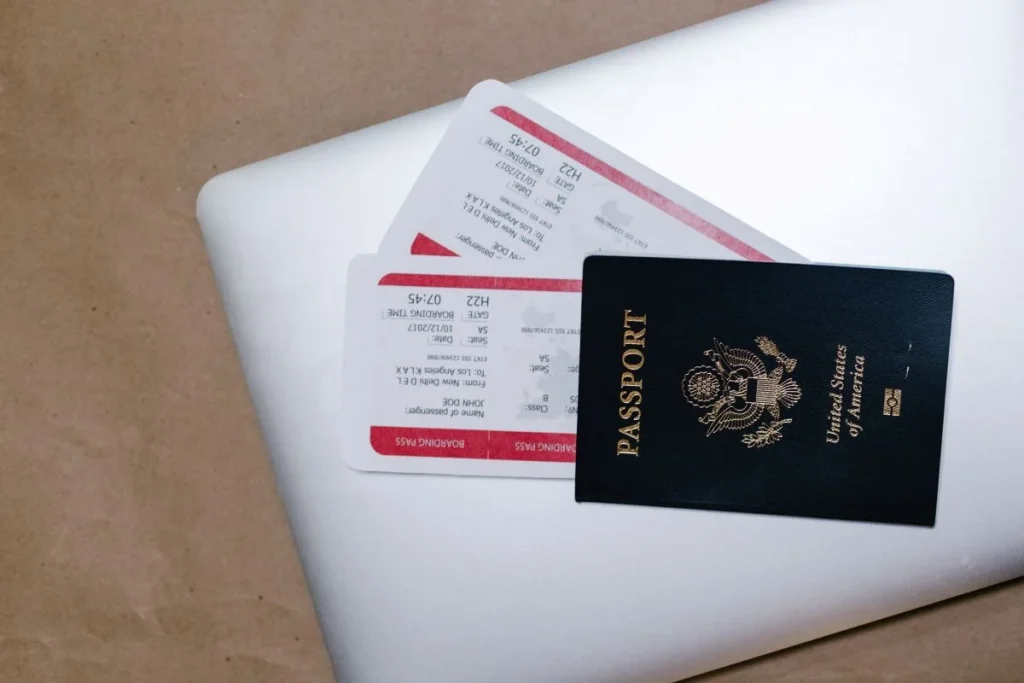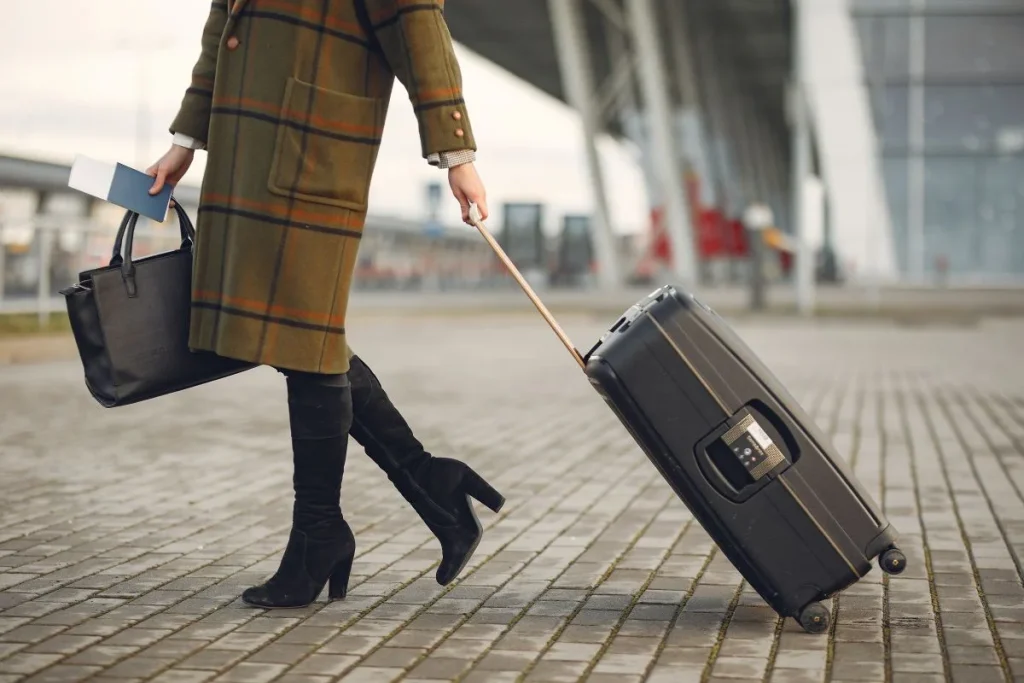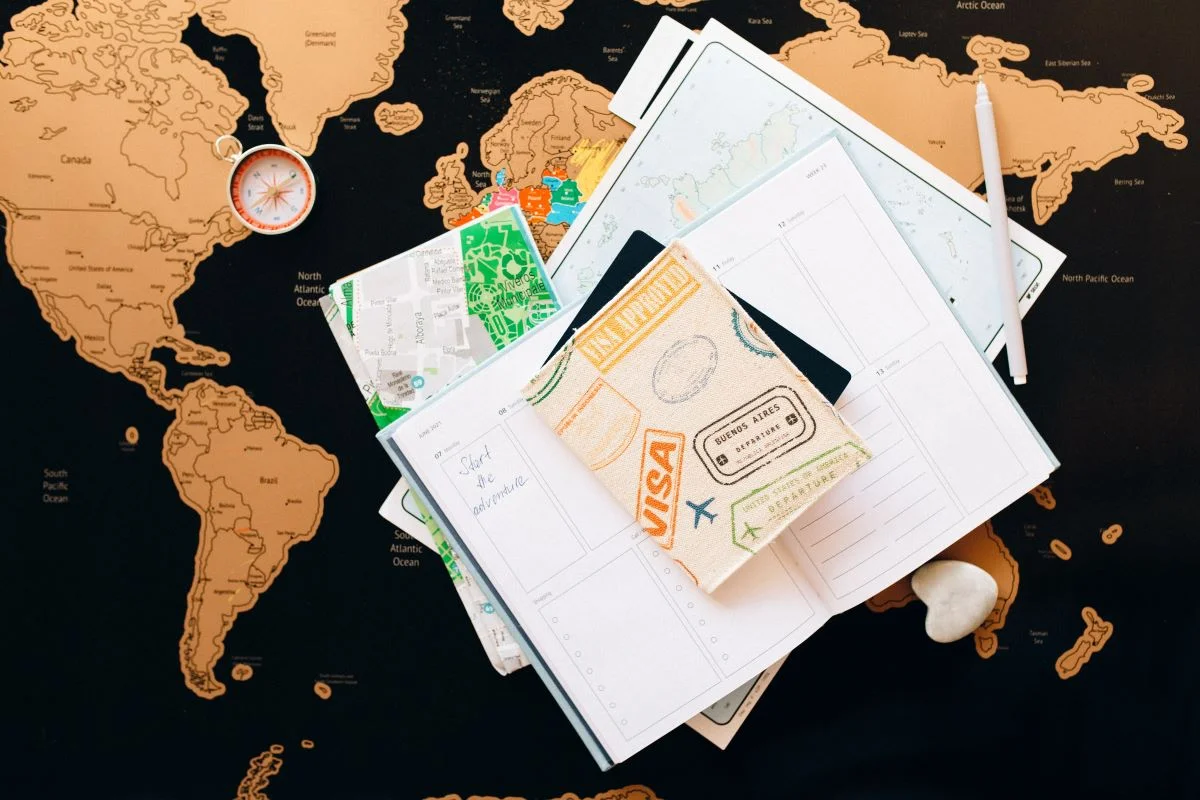The Philippines is a well-liked vacation spot for visitors from all over the world because of its breathtaking beaches, lush surroundings, and colorful culture. To ensure a hassle-free admission and stay, it’s essential to be knowledgeable about the nation’s immigration regulations, regardless of whether you’re traveling for business, pleasure, or another reason. If you’re thinking about staying a while, you might also want to consider renting a condo in Las Piñas, a stunning Philippine city recognized for its distinctive fusion of urban convenience and natural beauty.
What is Immigration?
Immigration is the process through which people or groups relocate from one nation or area to another with the aim of living there. These movements can be short-lived or long-lasting, and they are frequently sparked by a range of variables, such as economic, social, political, and personal ones. Immigration can happen in two ways: officially, through well-established visa and immigration processes, or illegally, when people enter a country without the required authorization or papers.

Combinations of “push” and “pull” variables frequently have an impact on immigration. Push factors are circumstances in the home nation, such as political unrest, violence, a lack of job opportunities, or persecution, that force people to leave. The draw of the destination nation includes things like increased career possibilities, political stability, a high standard of living, and educational opportunities.
Each nation has its own immigration laws and rules governing immigrants’ admission and residence. These regulations may include criteria for eligibility, procedures for attaining a legal immigration status, and requirements for visas and quotas. Naturalization is the process through which immigrants become citizens of the receiving nation after immigration. This frequently entails completing certain residency criteria, passing language and culture examinations, and demonstrating a commitment to the host country’s values and legal framework.
Immigration frequently contributes to the host nation’s cultural and social variety. Through the introduction of fresh perspectives, foods, languages, and traditions, variety can improve societies. However, it can also present issues with social cohesiveness, integration, and cultural diversity. Immigration enforcement organizations are found in many nations and are in charge of overseeing and controlling immigration. These organizations may control borders, provide visas, expel illegal immigrants, and enforce immigration laws.
Bureau of Immigration
In the Philippines, the immigration status of citizens as well as the admission and exit of foreign people are governed by the Bureau of Immigration (BI), a government organization. The BI is essential in implementing immigration rules and regulations to guarantee public safety, national security, and the orderly entry and exit of travelers.

The Bureau of Immigration’s Main Duties and Responsibilities
The BI is in charge of issuing different kinds of visas to foreign citizens who want to come to the Philippines to visit, work, study, or dwell. These visas include student, work, and tourist visas among others. The BI also keeps track of foreign nationals’ stays in the nation and may extend them if needed. These duties ensure that people fulfill the appropriate criteria and abide by immigration regulations, regulating the entry and duration of foreign nationals’ stays in the nation.
- The Philippines offers a wide range of visas to accommodate diverse travel needs, including tourist, student, job, business, and retirement visas. There are distinct qualifying requirements, conditions, and permissible activities for each type of visa.
- Consular personnel examine visa applications and determine if the applicant satisfies the criteria for the selected visa category. Background checks, interviews, and document verification may all be used in this process.
- Before leaving the Philippines, some visa categories, such as those for foreign workers, may need an exit clearance or special approval. This guarantees that the visitor complied with all obligations and legal requirements while they were in the country.
- Overstaying visas and engaging in illegal activity can result in fines, jail, or expulsion for foreign people. It is crucial to abide by visa requirements and request extensions as needed.
Border Control: Immigration inspectors from the BI inspect and screen travelers at Philippine ports of entry, verifying their passports, visas, and other travel documents to make sure they are in accordance with immigration rules. Additionally, they tally the necessary immigration fees and authorize admission for travelers.
Registration and monitoring of aliens: The BI keeps a list of foreigners who reside in the Philippines. According to the law, foreigners must notify authorities of their presence and submit updates on their immigration status.
Collaboration with Other Agencies: The BI works with other government organizations to handle issues relating to immigration, security, and law enforcement, including the Department of Foreign Affairs (DFA), the Philippine National Police (PNP), and other law enforcement organizations.
Immigration authorities all across the world, notably the Bureau of Immigration in several nations, have important duties related to anti-trafficking and anti-smuggling initiatives. These initiatives try to stop the unlawful flow of products, including illegal immigrants and contraband, as well as human trafficking.
It’s important to remember that immigration laws and policies can change, so tourists and foreign nationals living in the Philippines should keep up with the most recent information and requirements by visiting the Bureau of Immigration’s official website or by getting in touch with the Philippine government’s embassy or consulate in their home country. To ensure a seamless and trouble-free trip while in the Philippines, compliance with immigration procedures is crucial.
Philippines Immigration Requirements for Tourists

Visa and Passport Requirements
a. To enter the Philippines, visitors must have a passport that is valid for at least six months after their intended departure date. It’s critical to confirm the expiration of your passport well in advance of your travel.
b. Visa: For brief visits (often up to 30 days), the Philippines grants nationals of many nations visa-free access. However, depending on your nationality and the purpose of your trip, different visas may be needed. For the most recent details on visa requirements, it is advised that you check with the Philippine embassy or consulate in your country or go to the official website of the Bureau of Immigration.
Extension of stay in the Philippines- Applying for a visa extension at the Bureau of Immigration will allow you to stay in the Philippines for a longer amount of time. Extensions are typically provided for non-immigrant purposes such as tourism, business, or other. To avoid breaking immigration laws, you must request an extension before your original visa-free stay expires.
Requirements for Entry and Exit- Travelers are normally expected to do the following upon arrival in the Philippines: Fill out an Arrival Card: You will be given an arrival card on your flight or at the airport. Make sure to accurately fill out this card, and keep it with your passport. Present an Onward or Return Ticket: To confirm that you do not intend to overstay your visa-free time, immigration authorities may ask for documentation of an onward or return ticket. You may be required to provide documentation proving you have the financial resources necessary to finance your stay in the Philippines.
Particular Visa Types
- Tourist visa- Since tourist visas are frequently only designed for brief stays, extending one is much more difficult than doing so with other sorts of visas. Your ability to extend your tourist visa, however, may occasionally be possible depending on the nation’s immigration regulations. This 30-day visa is appropriate for tourists traveling for pleasure. Extensions could happen.
- Student Visa- A student visa is a sort of visa that enables visitors from other nations to study abroad for a predetermined amount of time. Different countries may have quite different regulations and application procedures for student visas, but there are certain commonalities. Typically, in order to apply for a student visa, you must first be approved by a recognized university in the nation where you desire to enroll. It might be a university, a college, a language school, or another reputable learning facility. Many nations need proof that you have enough money set aside to pay for your tuition, living costs, and any other associated charges during your stay. Giving bank statements, scholarship offers, or letters of financial assurance may be required. Some nations demand evidence of ongoing health insurance coverage. This is to guarantee that you can get medical treatment while you’re studying abroad.
Inherent Rights of Balikbayans
The term “Balikbayan Privilege” refers to a unique immigration and visa privilege in the Philippines that is given to former Filipino citizens and their families who are traveling back for a brief visit as well as to Filipino citizens who have been working overseas as Overseas Filipino Workers (OFWs).
The Balikbayan Program enables former Filipino citizens and their close relatives to enter the Philippines without a visa for a maximum of one year. You must have already held the citizenship of the Philippines, as well as fulfilling other conditions. This permission is a great choice for people who desire to visit their relatives or their heritage. The Balikbayan Privilege enables qualified individuals to remain in the Philippines without a visa for a prolonged period of time.
The privilege is largely meant to encourage Filipino nationals who have been working and living overseas, particularly OFWs, to travel back to the Philippines. However, regardless of nationality, it is also granted to former Filipino nationals and their close relatives. The immediate relatives of a Filipino citizen who qualifies may travel with them according to the Balikbayan Privilege. The husband and kids are typically included in this. If they continue to meet the requirements after the first one-year stay, Balikbayans may obtain extensions for up to an additional 36 months. During their visit, balikbayans are entitled to a number of benefits, including duty-free shopping, travel tax exemption, and other advantages that encourage tourism and improve links with Filipinos living abroad.
Overstaying Penalties
A visa overstay or remaining longer than is permitted can have serious repercussions, including fines and other punishments from immigration authorities. These punishments might differ from one nation to the next and are based on the laws and rules governing immigration in that nation.
- Penalties for exceeding a visa’s validity are frequently monetary. Depending on the nation, the length of the overstay, and the type of visa, the fine amount can differ significantly. These penalties can be expensive and build up over time.
- People who overstay their visas may frequently be subject to deportation or removal proceedings. People who are in breach of their immigration status may be detained and then removed by immigration authorities.
- Future immigration limitations may result from overstaying a visa. Depending on the seriousness of the breach, certain nations may impose bans or limits on readmission, preventing people from returning for a set amount of time or even forever.
- If you overstay your visa, getting one in the future for that nation or others may be quite difficult. Authorities in charge of immigration may consider a prior overstay to be proof of a potential future visa condition violation.
- Overstaying can occasionally result in legal repercussions, such as being charged with a crime, particularly if the overstay was intentional or involves forged documentation.People who have overstayed their visas may be detained by immigration authorities, particularly if they are thought to be flight risks or a security risk.
- An individual’s ability to work or study legally in a foreign nation may be impacted by overstaying. As a prerequisite for employment or enrollment, employers and educational institutions may demand proof of legal immigration status.
The laws and rules governing immigration in the nation you are visiting or residing in must be understood and followed. If you discover that you have overstayed your visa, it is advisable to speak with the local immigration officials or get legal advice to learn about your choices and the likely repercussions. In many instances, the best course of action to escape harsher punishments may be to voluntarily leave the nation before being apprehended by law enforcement.
Take the time to learn about and comprehend the Philippines’ immigration regulations before beginning your travel there. You may have a hassle-free trip to this stunning and diverse archipelago by making sure your passport, visa, and other necessary documentation are in order. To have a worry-free and joyful travel to the Philippines, keep in mind that immigration regulations can change, so it’s important to stay informed with the most recent information from official sources.
Related Blog: How the PH eTravel System Makes Travel Convenient


